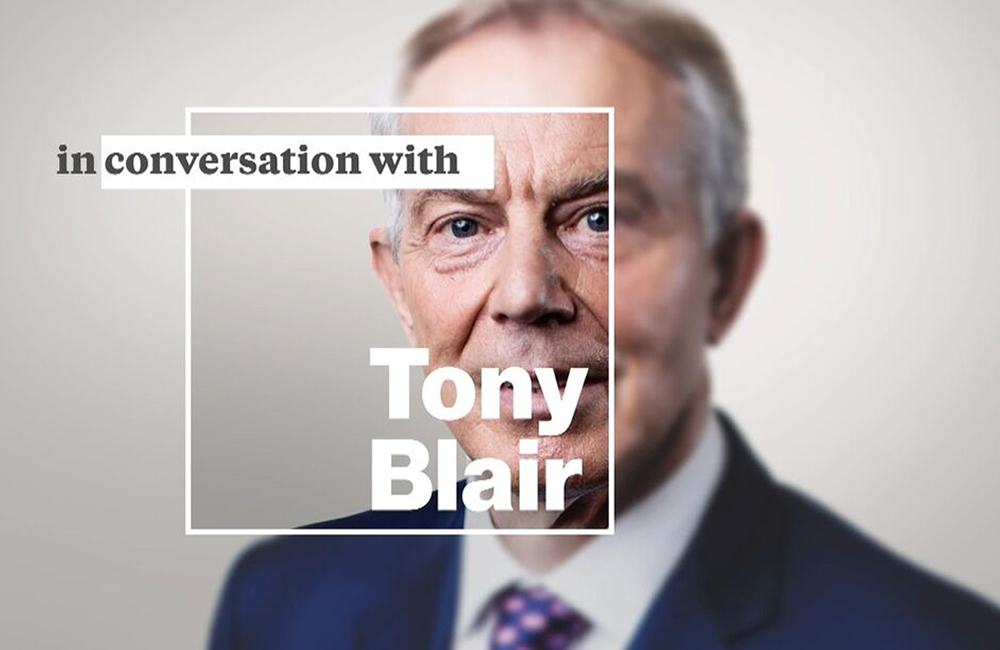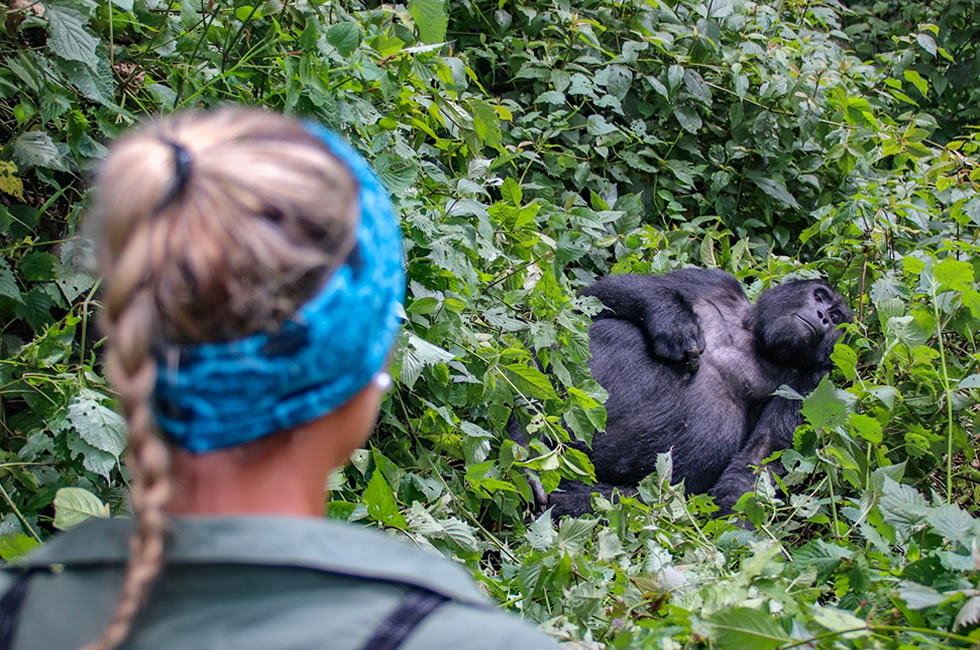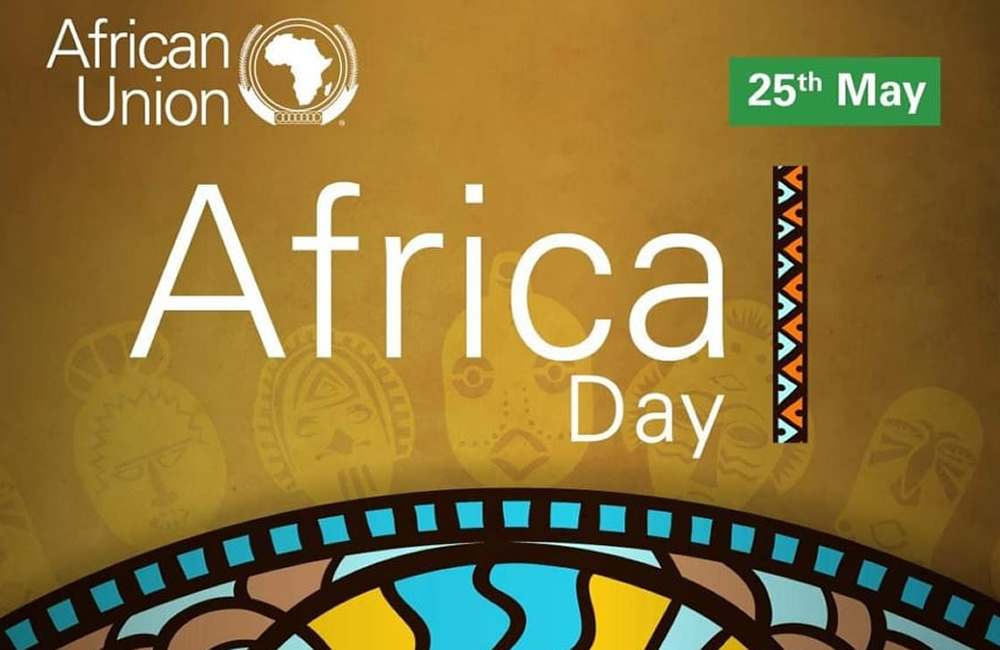Tony Blair speaks exclusively to Gary Nunn from the See Africa Differently team about what he thinks of the campaign to portray the modern, progressive Africa
Gary Nunn (GN): See Africa Differently is a campaign to showcase the under-reported progress from Africa. Why is it we’re not hearing good news stories about Africa?
Tony Blair: Well, first of all, let me say that the aim at the very heart of See Africa Differently couldn’t be more timely and important because the perception of Africa is too often a world away from the reality. And that reality is a vibrant growing continent with a bright future. I firmly believe that the 21st century can be Africa’s century and it should be. Talking about the numerous positive stories of economic, social and democratic progress is an important part of that.
Bad news stories about crisis and famine, wherever it happens, are often the easiest stories to tell from a news perspective. And they can be important because they raise awareness of situations where help is urgently needed. Like the way people around the world have responded so generously to news of famine in the Horn of Africa or the effects of the tsunami in Japan.
The good news is that stories of success and progress are becoming less exceptional each day and therefore harder for people to ignore. When I look at the current generation of African leaders, and the young people growing up in the countries they lead, I can see the old narrative, of Africa, being shaken as new stories are being told. Like how in the last decade 46.5 million more children in Africa started attending school. Stories like this show a continent on the up, with a bright future ahead of it.
GN: Recent ComRes polling we commissioned of 2,000 UK adults found that 1 in 5 misidentify Africa as a country and 84% associate Africa with poverty – but only 3% say Africa is ‘good for business.’ How should we clear up these misconceptions and portray a more diverse and positive depiction of African countries?
Tony Blair: People in the development community and those who have had the chance to see for themselves the many instances of African progress and success can certainly help by highlighting the facts about Africa because the data shows a continent, on the whole, going in the right direction. But in the end, the misconceptions will be righted by the African people themselves, by their stories and achievements.
And there is a lot to celebrate. Take Sierra Leone for example, a country where I work with the President through the Africa Governance Initiative (AGI), a charity I set up a few years ago. Sierra Leone has seen free and fair elections. Stability and peace restored after the brutal decade-long civil war. Reliable electricity in Freetown for the first time ever. Investment transforming the country’s infrastructure and creating jobs. A better chance at life for a quarter of a million mothers and a million babies born since the government abolished user fees for health services. And a government that understands how vital business is to building its people’s own prosperity. For example, we at AGI, worked with the government and others in 2009 to convene a trade and investment conference in London that attracted 1,000 potential investors. A few years before that, you would have been lucky to get 100 investors to turn up. That shows a business community that sees Sierra Leone and other African countries as ‘good for business’.
We need to turn the public’s attention towards these stories. Some people’s perceptions are based on an unexamined view of the past that really is out of date.
Rwanda provides a good example. The genocide that killed 800,000 people in 100 days continues to dominate perceptions, and that often conceals the remarkable progress the country has made. We can never forget the genocide, but the Rwandans have shown that remembering the past need not come at the expense of a positive future. Since the genocide, Rwanda has emerged as one of the world’s top ten fastest growing economies of the last decade. I see that for myself every time I visit and see new roads, new schools, new restaurants, and more people deciding to go there on holiday: all signs of real progress.
If we can turn the public’s attention towards these stories, cause them to take a second look, I believe the true picture of modern Africa can emerge.
GN: The same polling found that 52% believe that Africa is ‘a long term charity case.’ Does this need to be the case? How can we shift perceptions?
Tony Blair: This doesn’t need to be the case, far from it. I firmly believe that Africa can be free of dependence on aid within a generation. Now that’s an ambitious goal, but it’s also an achievable goal. Achievable, if we adopt the right thinking and if leaders in both the developed and developing world can find the political will.
And, by the way, that’s what I believe the international community should commit to when political leaders gather in Busan, South Korea at the end of November to discuss aid effectiveness.
The perception of Africa as a long term charity case is wrong and it’s up to the aid community and, more importantly, Africans themselves, to counter this perception with the increasing reality of a growing Africa. That is why it is important to demonstrate that the aid community is still thinking, innovating and evolving.
We need to demonstrate the achievements that have been made and tell the stories of progress.
Nearly all the world’s fastest growing economies are in Africa, apart from China and India. Globally, aid dependency fell by an average of one third in the poorest countries. In Rwanda the portion of its budget that comes from aid has nearly halved because they have been able to raise that in tax revenue. In the 1980s there were three truly free elections in Sub Saharan Africa, in the last decade there were 25.
Achievements like this are becoming increasingly hard to ignore and we have to help make them impossible to ignore.
GN: How and why should we progress the traditional ‘us helping them’ view of aid to one of African countries helping themselves and promote Africa to future business investors in the younger generation?
Tony Blair: In many countries this change is already occurring. There is a real sense of possibility and determination amongst the African leaders devoted to self-reliance and ending their reliance on aid.
Practically, there are clear steps the international community can take to support this.
First, the only long term method of escaping from poverty is to grow Africa’s private sector because businesses create jobs and jobs bring prosperity. African leaders have a responsibility to attract high quality, sustainable investment the rich world needs to support this by opening up markets and removing trade barriers.
Second, we should support African governments to build their capacity to deliver for their citizens. This issue of governance, how to get things done for the people, is the biggest single challenge I see for governments, not just in Africa, but the world over. That is why I set up the Africa Governance Initiative (AGI), to support leaders and to help them build their systems so they can implement their development plans and tackle poverty.
Third, we need to deliver aid in a way that strengthens African governments – with them in the driving seat, using local systems. This is a commitment the international community made in Paris in 2005 but it’s not been delivered yet. The message I’m taking to Busan, when the world gathers to discuss aid effectiveness is that the rich world needs to practically deliver on this commitment to country ownership because that’s the best way to help countries get on their own two feet and eliminate aid dependence.
GN: As Prime Minister you famously introduced all women shortlists. Yet 16 African countries have a higher proportion of women in parliament than the UK – and Rwanda has the highest proportion in the world. What can UK learn from Africa about gender equality?
Tony Blair: I think this brings us back to the previous question about perceptions. The UK needs to know more about the landmark achievements being made on gender and several other issues. Whether it is the high proportion of women in the Rwandan parliament, President Ellen Johnson Sirleaf of Liberia becoming Africa’s first female Head of State, or the bright young women whom our staff at AGI works side-by-side with, these are stories that must be told.
It’s something that we try do at the Africa Governance Initiative and it’s clearly something that See Africa Differently is committed to doing.
GN: What 3 words sum up a modern, progressive Africa to you?
Tony Blair: Energy. Determination. Possibility
Tony Blair is the patron of the Africa Governance Initiative (AGI), a charity which is pioneering a new way of working with African countries. AGI currently works in Sierra Leone, Liberia and Rwanda, helping to equip committed African leaders with the capacity to deliver the public services which their citizens have the right to expect, to tackle deep-rooted poverty, and to attract the sustainable investment to build strong economies for the future. Find out more at: http://www.africagovernance.org






